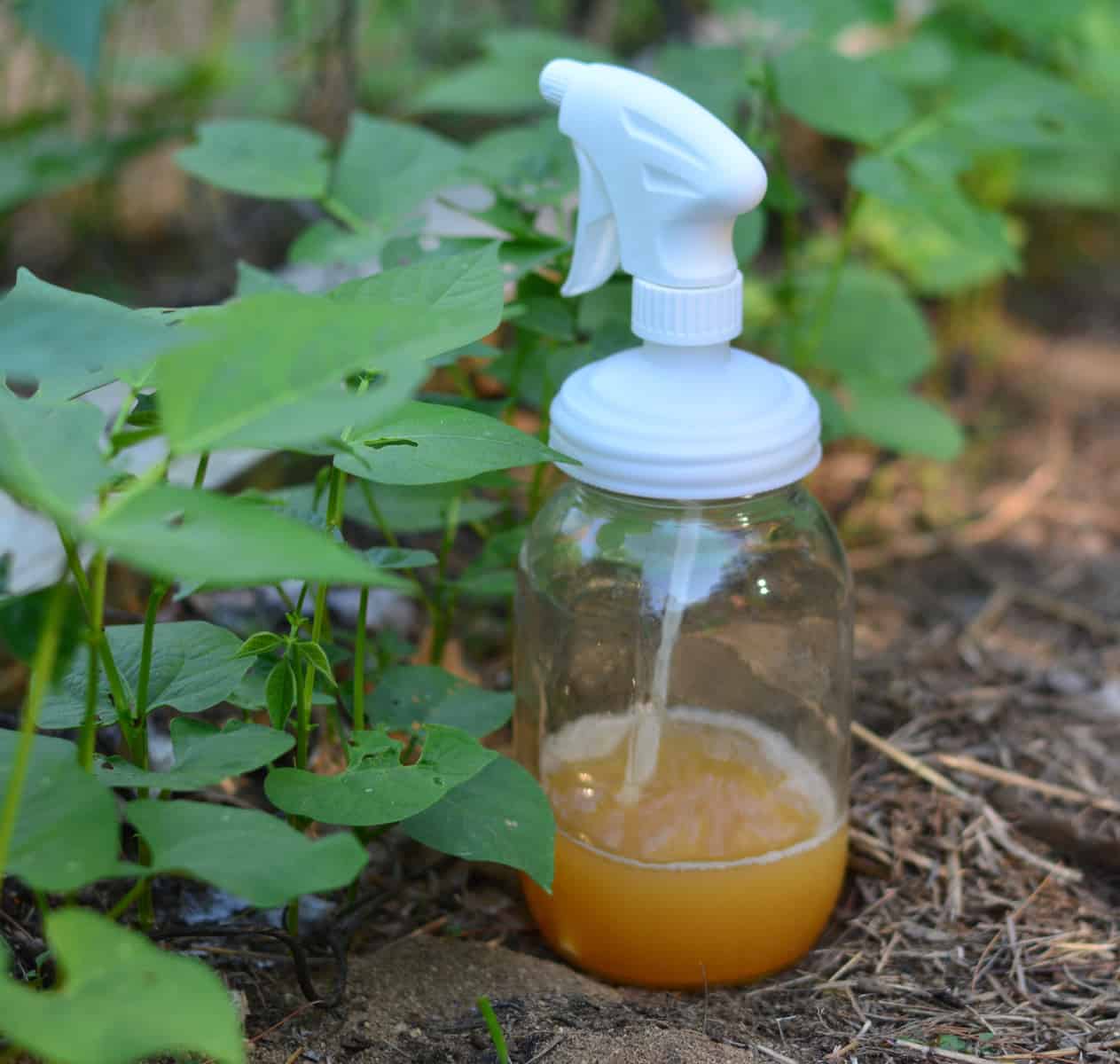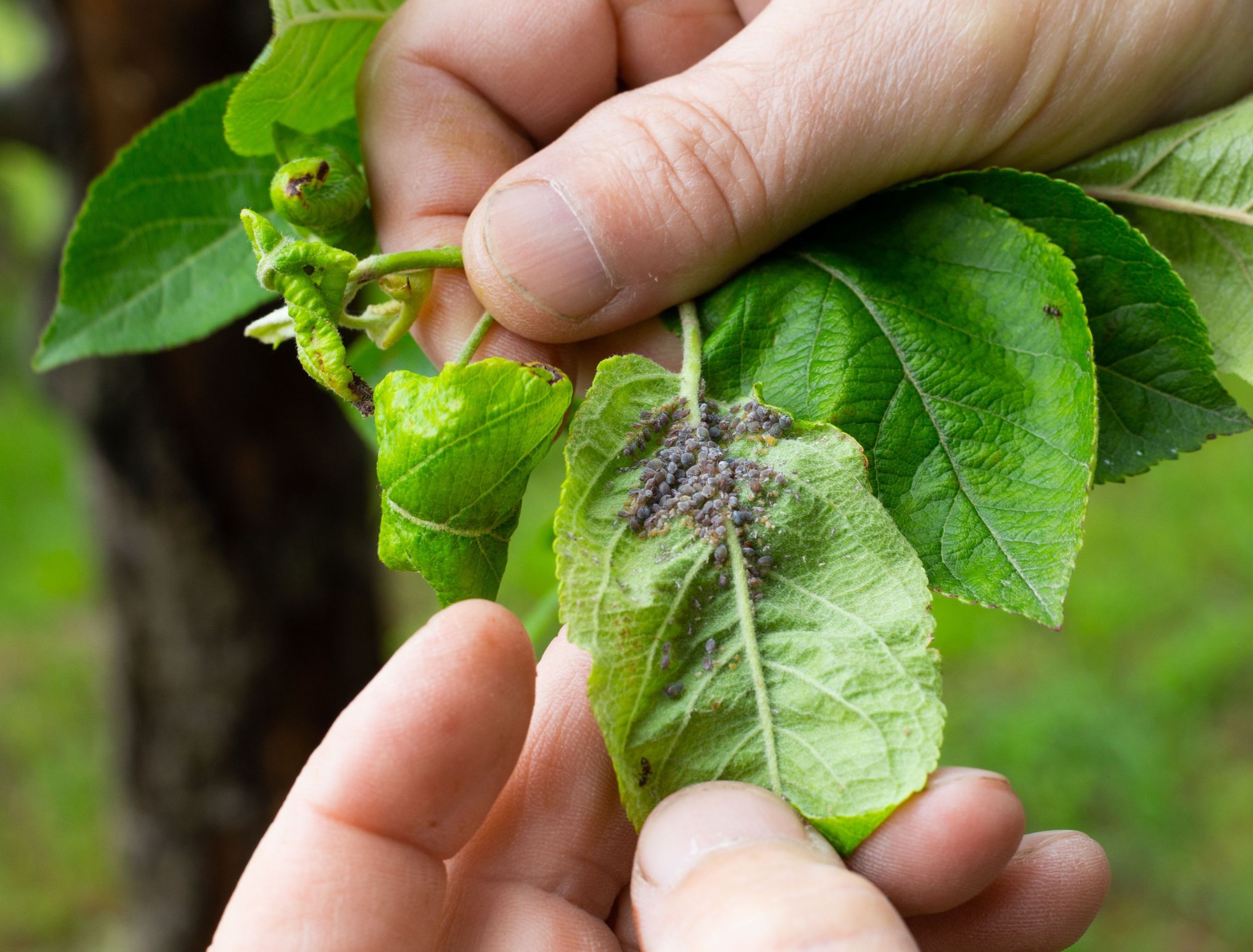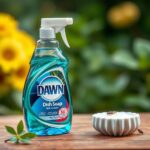What is the Best Natural Remedy for Aphids? Top Solutions for Your Garden

Aphids are small but notorious pests that can wreak havoc on your garden, feeding on the sap of plants and potentially transmitting diseases. As gardeners seek natural solutions to combat these unwelcome intruders, it's essential to explore effective remedies that are safe for the environment and beneficial for plant health. This article will delve into the best natural remedies for aphids, highlighting top solutions that can be easily implemented in your garden. From homemade sprays to companion planting strategies, discover how to protect your plants and promote a thriving, pest-free garden ecosystem.
What are the most effective natural remedies for aphids?
One of the most effective natural remedies for aphids is the use of a simple mixture of water and soap. By combining a few drops of liquid soap with water in a spray bottle, you create a solution that suffocates the aphids upon contact, effectively reducing their population on your plants. This method is particularly favored because it is safe for most beneficial insects, making it an eco-friendly choice. Furthermore, regularly applying this solution can help prevent future infestations while promoting healthier plant growth.
Why use natural remedies for aphids?
Using natural remedies for managing aphids is not only safer for the environment but also for the ecosystem in your garden. Chemical pesticides can harm beneficial insects such as ladybugs and bees, which play vital roles in pollination and pest control. Natural options minimize these risks while still effectively controlling aphid populations. Furthermore, many natural treatments can be made from easily available household items, making them both cost-effective and sustainable solutions for gardeners.
How to make a soap water solution?
To create an effective soap water solution, mix one to two tablespoons of liquid soap (preferably pure, biodegradable soap) with one quart of water in a spray bottle. Ensure that you mix the solution thoroughly to create a uniform blend. When applying this solution, spray it directly onto the aphids on the infested plants, paying particular attention to the undersides of leaves where aphids tend to hide. This application usually requires repeat treatments every few days until the infestation is under control.
Other natural remedies for aphids
In addition to the soap solution, there are other effective natural remedies for controlling aphids. Neem oil, a natural pesticide derived from the seeds of the neem tree, can disrupt the life cycle of these pests when applied correctly. Another option is introducing beneficial insects, such as ladybugs and lacewings, into your garden, which are known to feed on aphids. Additionally, certain essential oils, like peppermint or rosemary oil, when diluted and sprayed, can help deter these pests due to their strong scents and qualities.
Preventing aphids with companion planting
Companion planting is an excellent strategy to deter aphids naturally. By planting species that are known to repel aphids, such as marigolds or nasturtiums, alongside susceptible plants, you can create a natural barrier against these pests. Moreover, planting herbs like basil or chives can also confuse and repel aphids, reducing their likelihood of infesting nearby plants. This holistic approach not only helps control aphids but also promotes overall garden biodiversity and health.
When to apply natural remedies for aphids?
Timing is crucial when applying natural remedies for aphids. It is most effective to treat infestations early, as aphid populations can multiply rapidly. Begin treatment as soon as you notice signs of aphid activity, such as curling leaves or sticky residue. Generally, it's best to apply remedies in the early morning or late afternoon when the temperatures are cooler and beneficial insects are less active. Regular monitoring of your plants will help you maintain control and prevent future outbreaks.
| Natural Remedy | Description |
|---|---|
| Soap Water Solution | Mild soap mixed with water to suffocate aphids. |
| Neem Oil | Natural pesticide that disrupts aphid life cycles. |
| Beneficial Insects | Introducing predators like ladybugs to eat aphids. |
| Essential Oils | Oils such as peppermint that repel aphids with their scent. |
| Companion Planting | Planting certain plants that naturally repel aphids. |
What is the best homemade aphid killer?


The best homemade aphid killer is a solution that combines natural ingredients that are safe for plants but effective in eliminating these pests. Here are some of the most effective recipes and methods you can utilize:
Soap and Water Solution
One of the easiest and most effective homemade aphid killers is the soap and water solution. This method is effective because the soap can break down the protective outer layer of aphids, leading to dehydration.
- Mix 1 to 2 tablespoons of liquid soap (not detergent) per gallon of water.
- Test the solution on a small part of the plant to check for sensitivity.
- Spray the affected areas thoroughly, ensuring you cover both the upper and lower leaves.
Neem Oil Spray
Neem oil is a natural pesticide derived from the seeds of the neem tree. It disrupts the life cycle of aphids and can also repel them.
- Mix 2 tablespoons of neem oil with 1 gallon of water.
- Add a few drops of liquid soap to help emulsify the solution.
- Use a spray bottle to apply the solution directly to infested plants.
Garlic Spray
Garlic contains compounds that can deter aphids. A garlic spray acts both as a repellent and a remedy to eliminate infestations.
- Blend 2 cloves of crushed garlic with 2 cups of water.
- Let the mixture sit overnight, then strain it to remove solids.
- Dilute the garlic solution in 1 gallon of water and spray on affected plants.
Chili Pepper Spray
Chili pepper spray is another effective homemade remedy due to its spicy components, which aphids find unpleasant.
- Blend 2 tablespoons of crushed chili pepper with 1 quart of water.
- Let the mixture steep for several hours, then strain it.
- Spray the solution directly on the aphid-infested areas of your plants.
Essential Oils Repellent
Certain essential oils, such as peppermint and rosemary, have insecticidal properties that can effectively repel aphids.
- Combine 10 drops of your chosen essential oil with 1 quart of water.
- Add a few drops of liquid soap to help the oils mix with water.
- Shake well and spray directly onto plants, focusing on the infested areas.
Does vinegar kill aphids naturally?

Vinegar, particularly white vinegar, has been suggested as a natural remedy for controlling aphids, which are common pests that feed on plants and can cause significant damage. While vinegar can be effective in controlling aphids, it is essential to understand its usage, limitations, and how it interacts with plant health.
See also:
How Does Vinegar Affect Aphids?
Vinegar contains acetic acid, which can be harmful to aphids. The acidity of vinegar can disrupt the cell membranes of the pests, leading to dehydration and death. However, vinegar is not a selective pesticide; it may also affect beneficial insects if not used carefully.
- Direct Application: Spraying diluted vinegar directly on aphids can kill them on contact.
- Dehydration: The acetic acid pulls moisture out of aphids, leading to their demise.
- Effectiveness: While it can kill some aphids, it may not eliminate an entire infestation.
How to Use Vinegar for Aphids
To use vinegar as a natural insecticide, it is recommended to dilute it before application. A common ratio is one part vinegar to three parts water. This dilution reduces its strength, minimizing potential damage to plants while still being effective against aphids.
- Mixing: Combine 1 part vinegar with 3 parts water in a spray bottle.
- Targeting Infestations: Spray directly onto affected plants, focusing on areas where aphids congregate.
- Reapplication: Repeat every few days to ensure control, especially after rain or watering.
Potential Risks of Using Vinegar
While vinegar can assist in managing aphid populations, it can also pose risks to plants. High concentrations of vinegar can harm foliage, leading to leaf burn or wilting.
- Leaf Damage: Strong concentrations can burn plant leaves.
- pH Balance: Excessive use can alter the soil's pH, potentially affecting plant health.
- Impact on Beneficial Insects: Vinegar does not discriminate, potentially harming good insects like ladybugs.
Alternative Natural Remedies
Besides vinegar, several other natural remedies can help control aphid populations. These alternatives can be both safer for plants and beneficial insects while still being effective.
- Insecticidal Soap: This option suffocates aphids and is less harmful to plants.
- Neem Oil: Derived from the neem tree, it disrupts aphid development.
- Companion Planting: Certain plants naturally repel aphids, such as marigolds or garlic.
Preventing Aphid Infestations
Preventing aphid infestations is often more effective than trying to control them after they appear. Implementing good gardening practices can help maintain healthy plants that are less susceptible to aphids.
- Regular Monitoring: Check plants frequently for early signs of aphids.
- Healthy Soil: Maintaining nutrient-rich soil supports robust plant growth.
- Diversity: Growing a variety of plants can deter aphids and attract beneficial insects.
Questions from Our Readers
What are some effective natural remedies for controlling aphids?
Aphids can be effectively controlled using several natural remedies. Some of the most popular include the use of neem oil, which disrupts their life cycle, and insecticidal soap, which suffocates them on contact. Additionally, introducing beneficial insects like ladybugs can help keep aphid populations in check.
How often should natural remedies be applied to combat aphids?
Natural remedies for aphids should generally be applied every 7 to 14 days until the infestation is under control. It's essential to repeat the application especially after rainfall or irrigation, as these can wash away the treatments, reducing their effectiveness.
Are there any plants that can repel aphids naturally?
Yes, certain companion plants can help repel aphids naturally. Plants such as marigolds, garlic, and basil are known for their pest-repelling properties, making them excellent additions to your garden to help deter aphids from attacking your crops.
See also:
Can homemade solutions be effective against aphids?
Absolutely, homemade solutions can be very effective against aphids. A common mix includes water, dish soap, and oil, which can create a gentle insecticide. This solution works by coating the aphids and suffocating them, proving to be a cost-effective method of control.

If you want to read more articles like What is the Best Natural Remedy for Aphids? Top Solutions for Your Garden, we recommend you check out our Insects category.
Leave a Reply
Related Articles